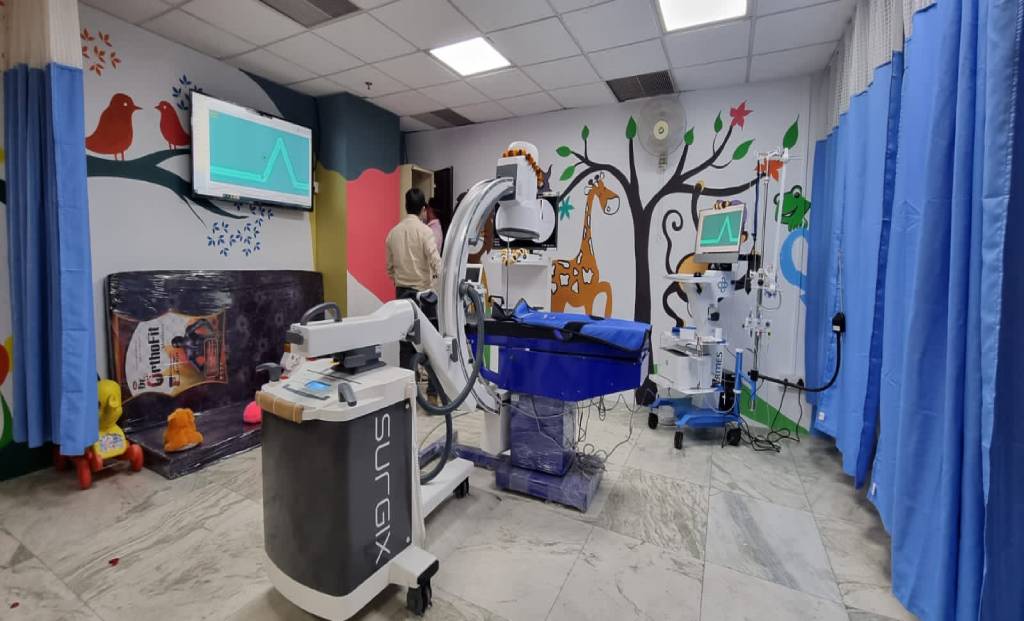Delhi Health Minister Satyendar Jain on Wednesday inaugurated a hi-tech medical equipment at LNJP Hospital that can detect urinary bladder-related problems through a camera and help children with urological and gastrointestinal diseases.
The minister took to Twitter to announce the inauguration of a “first-of-its-kind video-urodynamic system” at the largest facility of the Delhi government.
“This advanced equipment can detect urinary bladder problems through a camera and thus help children with urological & gastrointestinal diseases. It is further equipped to provide therapy as well,” he tweeted.
The first case of Covid in Delhi was reported in March 2020 and since then the LNJP Hospital, the largest facility of the city government has been at the forefront of the fight against the pandemic in the national capital, having treated domestic patients as well as those from foreign countries in three successive waves, the last being fuelled by the Omicron variant.
Inaugurated a first-of-its-kind video-urodynamic system at LNJP hospital today.
This advanced equipment can detect urinary bladder problems through a camera and thus help children with urological & gastrointestinal diseases.
It is further equipped to provide therapy as well. pic.twitter.com/qNECfJt9UV
— Satyendar Jain (@SatyendarJain) March 23, 2022
In a statement issued later, the health minister’s office said, it is a “state-of-the-art urodynamics lab” and “first-of-its-kind” equipment at any Delhi government-run hospital.
Jain while inaugurating this system, said, “We have installed a urodynamic video system at the hospital which is an essential machine used for diagnosing and treating urological conditions in children up to 12 years”.
This will help doctors in detecting conditions at an early stage in children which can prevent serious complications later in life. The system can be used to diagnose and treat other gastrointestinal diseases as well, he said.
Urological anomalies take up a major share of the volume of pediatric surgical cases. Hence, this system helps in the early detection of any such diseases and in doing so, can even prevent the need for renal transplants, the minister added.
This modern lab also has the capability for taking “real-time images” of abnormal physiology related to these conditions which are otherwise not possible with ordinary urodynamic machines and will improve diagnostic accuracy immensely, he said.
One of the key hospitals in the national capital and built during the British-era, it is located in central Delhi and has 2,000 beds.
Apart from urological conditions, the multi-faceted system at LNJP Hospital can also be used for treating and diagnosing gastrointestinal diseases, such as measuring pressures of anal canal and oesophagus, Jain said.
It will also be useful for therapy and performing biofeedback crucial for improving urinary and faecal control in affected children, he added.
Since there are only a few centres in the country which have such equipment, common people will greatly benefit from this addition.
This advanced equipment will prove to be a boon for people and the urology department as well, by enabling detection of urological diseases at an early stage and using the same for research, Jain asserted.

